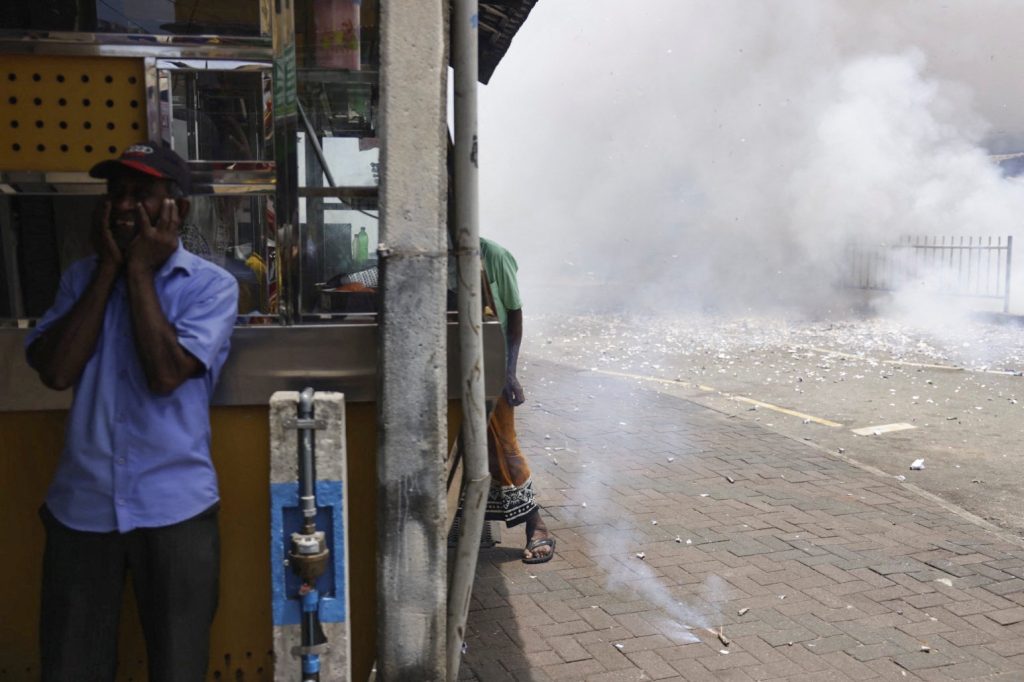Nearly two years after announcing a debt default in the middle of a severe social and political crisis, the Sri Lankan economy is showing the first signs of recovery. Year-on-year inflation dropped sharply to a low of 1.5 per cent in October 2023 from its peak of 70 per cent a year earlier. Interest rates are edging down accordingly and the highly volatile currency is now fluctuating within an acceptable range.
After the longest and deepest stretch of negative growth — lasting seven consecutive quarters — the economy finally returned to positive growth of 1.6 per cent in the fourth quarter of 2023. While the modest recovery may appear underwhelming, it still marks an important milestone for a country that suffered such a harsh economic setback.
The architect of this semi-recovery, Sri Lanka’s President Ranil Wickremesinghe, is yet to declare his intentions as Sri Lanka heads into the all-important presidential elections in 2024, where voters will decide who will lead the country for the next five years.
With the country’s Supreme Court apportioning responsibility for the crisis to the previous government led by former president Gotabaya Rajapaksa in a ruling handed down in November 2023, attention is turning to sustaining the recovery and deciding who can be best trusted to manage it. If polling numbers are to be believed, the front runner is from a Marxist-Leninist party — the Janatha Vimukthi Peramuna — which secured a mere 3.2 per cent of the popular vote in 2019.
The turnabout largely reflects popular disgruntlement with the day-to-day struggles of falling real incomes and lost livelihoods. While tax increases, market-based pricing on fuel, a shake-up of the welfare system and a clampdown on spending under the terms of Sri Lanka’s Extended Fund Facility (EFF) with the International Monetary Fund (IMF) are repairing the country’s public finances, the average citizen has suffered deeply.
Unlike in the past, where successive IMF programs were used to paper over problems and leave the job of overhauling the economy half done, this time around there is a critical need to convince Sri Lanka’s foreign creditors of its commitment to staying on course.
A concern is the economy’s continued high exposure to external shocks as external debt restructuring negotiations drag on. In October 2023, there was marked progress as Sri Lanka reached a preliminary agreement with China’s Exim Bank and secured the agreement of other large bilateral creditors like Japan and India. Sri Lanka has yet to reach an understanding with the country’s bondholders. An October 2023 proposal by bondholders for GDP-linked bonds was turned down by the Sri Lankan authorities. Without a final restructuring agreement, dollar infusions from bilateral donors, development partners and private investors remain a trickle rather than a flow.
It is also not helping that export earnings are falling. By October 2023, earnings had shrunk by over 10 per cent on the back of higher domestic production costs and sluggish global demand. While earnings from tourism and worker remittances are improving, the fact that vast numbers of Sri Lankans are leaving the country in search of better prospects is also of serious concern. With weak household spending and less than two months of foreign reserve import cover to deal with a volatile global economy, Sri Lanka’s recovery path is far from smooth.
While the tax burden is deeply unpopular, Sri Lankans will have to live with higher taxes, a public spending squeeze and a drop in living standards regardless of the promises politicians make before the 2024 elections.
Sri Lanka received the second tranche under the EFF agreement in December 2023. Delivering on the EFF commitments is crucial to tapping further budgetary assistance from multilateral financial institutions and retaining the goodwill of Sri Lanka’s sovereign creditors. With hardly any room for policy manoeuvring on the macroeconomic front until the economy is on a surer footing, what the elections may disrupt is the more challenging regulatory reforms that could accelerate the recovery in lost output.
Ranil Wickremesinghe is pursuing reforms to transform the land and labour markets, overhaul state owned enterprises and modernise the education system. Relaxing labour laws, expanding the private sector’s role in delivering tertiary education, selling government stakes in state owned enterprises or entering into regional trade agreements run up against vested interests. These initiatives will slow down in the run up to the election and whether they get picked up thereafter will depend on the electoral outcome. The strategy for now appears to be to ring-fence as much of the reform agenda as possible through legislation.
The crucial 2024 elections will do much to decide Sri Lanka’s future. The focus is not only on the economy but also on the need for stronger institutions and governance mechanisms. Weaknesses in governance are largely faulted for triggering the economic crisis. All these issues may make voter behaviour more unpredictable and tempt presidential aspirants to make unrealistic promises in the hope of attracting votes.
These claims and counter-claims will add to the uncertainties, but the grim reality for any eventual winner is that there is a gruelling recovery path ahead and any policy disruption will only make it that much more difficult.
Dushni Weerakoon is Executive Director and Head of Macroeconomic Policy research at the Institute of Policy Studies of Sri Lanka.


Following a debt default and severe sociopolitical crisis, Sri Lanka is experiencing initial signs of economic recovery with inflation dropping, interest rates decreasing and predictions of positive growth for the last quarter of 2023. As the country braces for the crucial 2024 presidential elections, President Ranil Wickremesinghe, who steered the partial recovery, is yet to announce his intentions. Citizens have expressed discontent over falling incomes and look towards a candidate who can manage and sustain the recovery amid challenges such as external debt restructuring, falling export earnings and resistance to reforms.